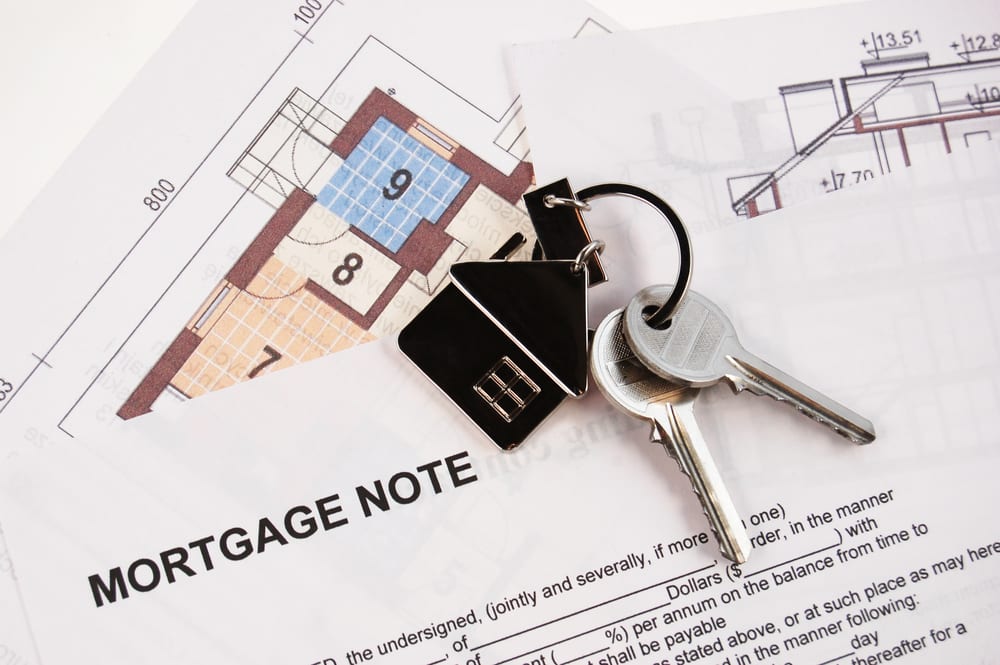
by cwms | May 8, 2025 | Mortgage Advice, Mortgage News, Uncategorized
Your Path to Homeownership: Essential Advice for First-Time Buyers
Embarking on the journey to buy your first home can feel overwhelming, but it doesn’t have to be. With the right strategies, tools, and a little patience, you can turn your dream of homeownership into reality. Here are some essential tips for first-time buyers to guide you through the process.

Start Saving Early
The first step towards buying your own home is to start saving as early as possible. Creating a dedicated savings plan can significantly impact your ability to secure a mortgage. Consider setting up a high-interest savings account specifically for your home purchase. Regular contributions, even if they are small, can accumulate over time and put you closer to your down payment goal. Additionally, consider cutting back on discretionary spending to boost your savings rate.
Exploring Low-Deposit Mortgages
Low-deposit mortgages can be an excellent option if you don’t have a substantial amount saved up for a down payment. Many lenders now offer products that allow first-time buyers to put down as little as 5% of the property value. This can significantly reduce the initial financial barrier to entry. However, with higher deposits you get a better interest rate on your mortgage. Research and compare different lenders to find the right interest rates and terms to suit your financial situation.
Understanding Shared Ownership and New Builds
Shared ownership schemes can be a great way to step onto the property ladder without buying a home outright. This model allows you to purchase a share of a property, typically between 25% and 75%, while paying rent on the remaining share. If you’re considering buying a new-build home, look into programs like Own New, which often offer additional incentives for first-time buyers. Coombes & Wright are approved brokers for Own New, a nationwide scheme funded through a subsidy paid for by the builder. Own New’s ‘Rate Reducer’ is for people buying a new build property and offers a unique mortgage with access to lower interest rates and reduced monthly payments during the initial mortgage period. By combining these opportunities, you can make homeownership more affordable and less daunting.
Professional Mortgages for Newly Qualified Buyers
If you’ve recently completed your qualifications in a professional field, explore professional mortgages explicitly tailored for new graduates or those in fields like healthcare, law, and finance. These specialised products often come with favourable rates and flexible criteria, recognising the higher earning potential of your new career. Engaging with lenders who understand your profession can help you navigate the purchasing process more smoothly.
At Coombes & Wright, our mortgage experts support you at every step, from your first enquiry to successful completion and picking up the keys. We manage the complete mortgage and protection process for you, including all application paperwork and admin, liaising with your lender, solicitors, estate agent or new home builders. Book a free, no-obligation initial consultation to chat through your options. We will get you well on your way to owning your dream home. Happy house hunting!
Book your free no-obligation initial consultation

by cwms | Jan 10, 2024 | Mortgage Advice, Protection Advice
Using a mortgage and protection broker can save you time and worry, handling everything from searching for a deal to applying and communicating with the lender on your behalf. In today’s busy world, we could all benefit from having a calmer, more stress-free life, so here are our top 9 reasons for using a broker…

1. Access to Better Deals & Products
Banks and lenders can only access their own products. By contrast, brokers look at a broad range of mortgages and broker-exclusive deals. We have access to over 65 lenders to find suitable products to meet your needs whether you’re a first-time buyer, remortgaging, moving house or a buy-to-let investor.
2. Manage all the Admin and Legwork
The Coombes & Wright team look after the complete mortgage and protection process for you, including all application paperwork and admin, liaising with your lender, solicitors, estate agent or new home builders. This can be daunting and stressful if you’re unfamiliar with all the jargon and processes. Don’t worry. We do all the legwork so you can relax! With advisers across Hertfordshire in Brookmans Park, Potters Bar, St Albans, Hertford and Abbots Langley, plus London, and Dover and Canterbury, Kent. We offer appointments at a time and location to suit you and are available to answer questions and provide advice.
3. More Streamlined, Less Stressful
As brokers, we deal with lenders daily. We know the application process and background criteria for each to ensure you encounter minimal delays.
4. Benefit from Expert Knowledge
Mortgage brokers have expert knowledge of the mortgage and protection market and can recommend deals that suit your personal situation. We access software to search products faster and more thoroughly than you could. We have day-to-day experience with which lenders are most likely to accept you and help you avoid applying for deals you’re unlikely to get (which can negatively impact future applications).
5. You’re Fully Protected
Brokers have a duty of care to recommend suitable mortgage and protection products and must be able to justify our recommendations. You can complain and be compensated if our advice is not up to scratch.
6. Honest Peer-to-Peer 5-Star Reviews
As consumers in 2024, checking out a company’s customer reviews is second nature. We’re incredibly proud to have over 650 5-star reviews across Google, Trust Pilot and Facebook, reassuring you of our commitment to excellent customer service.
7. Industry Experience
We know the industry – Mortgage criteria have tightened massively over the last few years, with arguably the most comprehensive ranges of products on offer. Affordability tests and checking processes are in place to protect consumers but understandably increase application complexity and timescales. That’s why it’s so important to stay in the loop – and to have a broker on your side who understands it all.
8. On Your Side
Brokers are on your side and work for you! We search for the most favourable mortgages and protection products to meet your individual circumstances. We aren’t on the lender’s side. You get unbiased advice and can choose from a range of lenders and subsequent products rather than being restricted to a single range directly from a lender.
9. Fully Qualified
Brokers are qualified – There’s a lot to consider when choosing a mortgage or protection product such as life insurance or income protection. It’s not as simple as just opting for the cheapest deal. Mortgage & protection brokers must be qualified to give you advice.
So, there you have it, our top 8 reasons to use Coombes & Wright Mortgage Solutions for your next mortgage, remortgage or protection product.
Book your free no-obligation initial consultation

by admin | Jun 4, 2023 | Mortgage News
There are many reasons why saving for a deposit is harder than ever before. The rising cost of living, covid, and Brexit have all negatively impacted. However, getting your foot on the property ladder is not an impossible dream. Here are some tips on saving for a mortgage deposit.

Use the LISA if you qualify
If you’re a first-time buyer aged between 18 and 39, you are eligible to open a Lifetime ISA account. You can pay up to £4,000 each tax year into the account. The government then adds a 25% bonus (£1,000 maximum). You must use your LISA towards purchasing your first home or to fund your retirement. Under current rules, you can have a LISA and a regular ISA. This means that your savings and/or investments will get even more protection from tax. For investments, we act as introducers only.
See if you qualify for further help
Central government has various schemes to help would-be housing buyers, especially first-time buyers. Local authorities may also have their own schemes. Check availability and eligibility in the location where you want to buy.
Be flexible about your exact location
Many buyers only consider homes within reasonable commuting distance of their place of work. However, it can be beneficial to keep your options open and consider what is ‘reasonable’.
What “reasonable” means in practice depends partly on your outlook and lifestyle, partly on your transport options and partly on how often you have to go into your office and place of work. If you’re fully or largely remote, it may be worth looking at areas further afield or with limited transport options, often reflected in the local property prices.
Buy a property in need of upgrading
Looking for a property needing upgrading is a bit like thrifting in charity shops. There are definitely bargains to be had, but you need to be alert and quick. You also need to be realistic about your goals and totally honest about what you can and can’t do yourself.
Secondly, be clear about how long it will take you to make the necessary changes and the property habitable. This would typically mean ensuring that it was structurally sound (wind and watertight) and had essential utilities. You might be able to live without heating in summer, but in winter, it’s a different story
Thirdly, be realistic about your budget for the updates. Buying a “fixer-upper” isn’t necessarily more affordable overall than buying a home in pristine condition. It just means that you can pay a lower upfront cost, thus making your deposit savings go further. You can then do upgrades yourself or pay for someone else to do them out of your ongoing income.
Consider downsizing while you save
If you can “make do and mend” with a smaller property while you save, you may be able to build a deposit more quickly. Similarly, you might want to consider moving to a more affordable location. A cautionary word, ensure this move doesn’t excessively increase your travel and living costs.
For help and advice about getting on the property ladder, contact Coombes & Wright Mortgage Solutions. We offer free initial consultations without obligation.
Book your free no-obligation initial consultation
For investments we act as introducers only

by admin | Jun 4, 2023 | Mortgage News
There are plenty of online mortgage calculators to help you figure out the likely cost of your mortgage. It is, however, useful to understand how the calculations are worked out and the influencing factors you need to consider. Here is a quick guide to help.

Calculating the total cost of a mortgage
It’s vital to remember that you can only compare mortgages fairly if you look at their total cost rather than just the headline interest rate. Sometimes this will involve making estimates, but you should be at least fairly confident that your estimates are accurate. If you’re unsure how your finances will look over the next few years, maybe a mortgage is not for you right now.
The main factors influencing the cost of a mortgage are:
- The interest rate
- The term and amortisation period
- The initial set-up fees
It’s also advisable to know the Early repayment charge.
The interest rate
Interest rates can be variable or fixed. Variable rates track the base rate set by the Bank of England. In principle, this means that they have infinite scope to go up but can only go down as far as zero (unless the BoE did introduce negative interest rates). In practice, mortgage lenders may choose to set a minimum rate that would apply regardless of how low the BoE sets the base rate.
Fixed rates give you security, but they do not necessarily work out more affordable than variable-rate deals. For example, they may have added fees that increase the price, especially if you add them to the loan. You will then have to pay interest on the fees too.
It’s also worth pointing out that fixed-rate mortgages are fixed in both directions. In other words, if interest rates go down, you still pay the same fixed rate.
The term and amortisation period
A mortgage term is essentially the length of any initial deal e.g. a five-year fix. The amortisation period is the length of time it will take you to pay off the mortgage. Both will play a role in the cost of a mortgage.
The mortgage term determines when you must choose between remortgaging or going on your lender’s standard variable rate (SVR). The length of your mortgage amortisation period influences how much interest you will pay overall. In short, if everything else is equal, a mortgage with a shorter amortisation period will be more economical than a mortgage with a longer amortisation period.
The initial set-up fees
The initial set-up fees can be divided into fees you pay regardless of the lender (e.g. valuation) and fees that depend on the lender. It’s useful to know both so you can judge the cost of remortgaging. You also need to know if you can pay these fees upfront or if you’ll need to add them to your loan. If the latter, you’ll need to factor in the cost of the interest payments.
The early repayment charges
You may plan to pay off your mortgage early, but life doesn’t always go to plan. If that sounds depressing, remember luck can be both good and bad. Luck is, however, a part of life, or, more formally, your circumstances can change. If they do, you may need to exit your mortgage before the term ends, so it’s advisable to know how much this will cost.
Overall
These are the main financial points you should note. There may, however, be other factors you want to consider. For example, you might want to look for a mortgage that comes with a key benefit, like some level of flexibility with payments. It’s absolutely fine to take this into consideration.
Contact Coombes & Wright Mortgage Solutions for friendly, local, and flexible advice. We help people at all levels of the property ladder, from first-time buyers to homeowners remortgaging and property investors.
Book your free no-obligation initial consultation

by admin | Oct 18, 2019 | Mortgage News
Over the last few years, there’s been a big marketing effort on the part of the “go-direct” brands. The irony of this is that actually these brands are not encouraging you to “go direct”, they are encouraging you to use their website to make your decision instead of either actually going direct or going to a proper, human mortgage broker, who can give people professional advice customised to their situation. To see how this works in practice, let’s look at the three different situations.
The “go-direct” brands
The “go-direct” brands are basically, affiliate-marketing sites. That means they get paid a commission for referring people who then go on to become customers. In other words, they work on exactly the same basis as the mortgage brokers they advise you to avoid using. They simply use computer algorithms to try to replicate the knowledge and expertise of a financial professional. Even though many jobs are currently being replaced by computers and there may come a time when artificial intelligence can do as good a job as a highly-skilled human, that time is still far off and as, when and if it does come, the “go-direct” sites are still likely to offer limited options in comparison with going to a human mortgage broker for the simple reason that some companies refuse to work with them for various reasons, many of which revolve around the fact that these sites encourage people to compare deals on headline price rather than looking at the specifics of the offer and the overall value it could provide.
Genuinely going direct
Genuinely going direct can be a perfectly feasible option, if you know your way around the mortgage market. If, however, you don’t you can spend a whole lot of time and energy looking for the best deal and still wind up not finding it or finding it and not being accepted for it. An often-overlooked fact about mortgage brokers is that they will not only make sure that they only suggest deals for which you have a decent chance of being accepted, but they will help to make sure that your application ticks all the right boxes (literally and metaphorically) to maximise your chances of being accepted and they may even have contacts with lenders which they can use to help turn a borderline case into a yes.
Going via a mortgage broker
There are basically two sorts of mortgage broker. One sort charges a direct fee to the client. The other works on commission. Neither sort is right or wrong and neither is better or worse than the other. Both sorts of mortgage broker will be working on behalf of the client and aiming to get them the best, possible mortgage deal. Their continued success depends on having a constant stream of satisfied customers (ideally customers who are satisfied enough to recommend other people). Mortgage brokers are, essentially, the average person’s guide through the labyrinth of the mortgage market. They can be very useful even if you’re “the perfect buyer” and hence in a solid position to find a good deal for yourself. Mortgages may carry relatively low-interest rates (meaning as compared to standard consumer debt) but they are usually for large amounts and hence the difference between a good deal and a great deal can add up to be an awful lot of money over the years. If you already know you are a less-than-perfect buyer and/or you are aiming to buy a more niche property (or to build your own home), then the more you should think about going to a mortgage broker rather than trying to go direct.
Your property may be repossessed if you do not keep up repayments on your mortgage.










Recent Comments